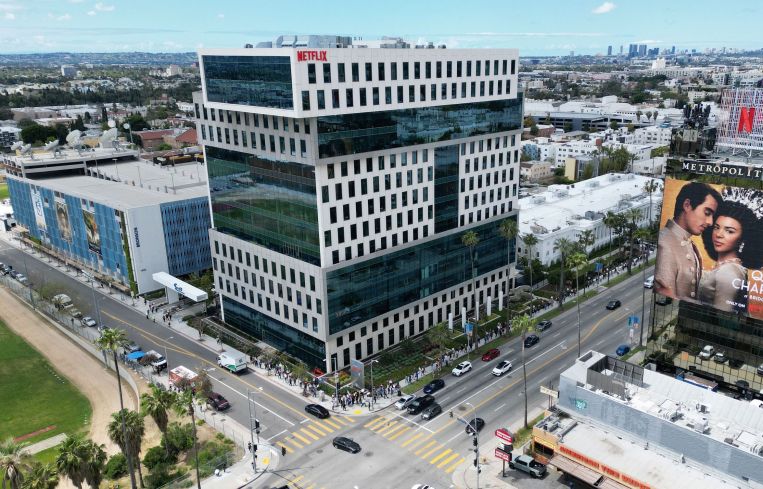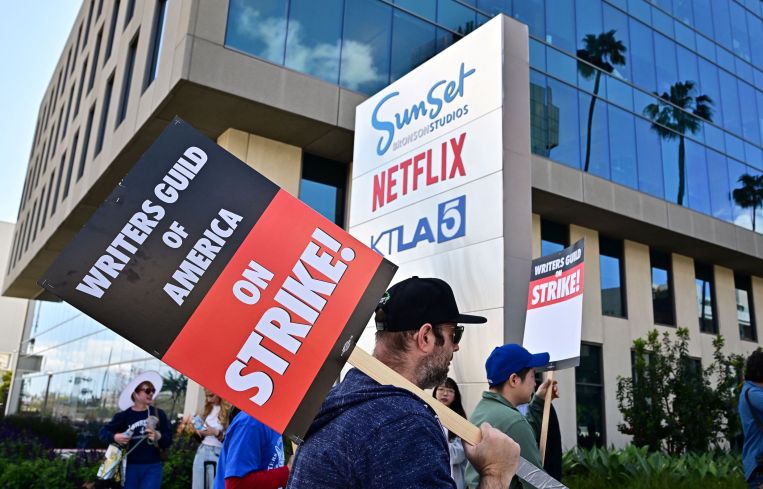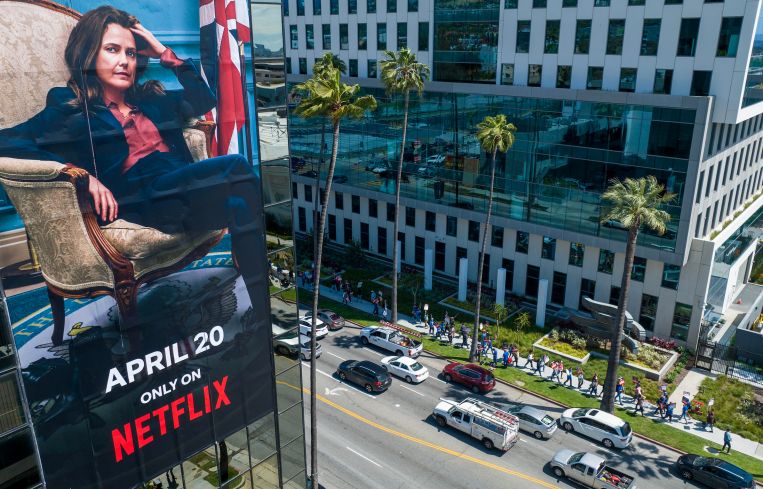Hollywood Writers Strike Dents Hudson Pacific’s Portfolio
L.A.-based REIT suspends its FFO outlook for studios due to the halt in film and TV production. Office occupancy slides further.
By Greg Cornfield May 9, 2023 4:45 pm
reprints


Hudson Pacific Properties’ (HPP) office portfolio of leading media and tech companies continued its trend of declining lease rates in the first quarter as interest rates rose and demand weakened in the post-pandemic world. And that was before the Hollywood writers strike halted production at studios around the country.
The Los Angeles-based REIT reported that its office portfolio ended the first quarter 86.9 percent occupied and 88.7 percent leased, noting decreases mostly for small to midsize expirations in the San Francisco area and Silicon Valley. The lease rate is 1 percent below the previous quarter, 3.6 percent below the first quarter of last year, and 6.1 percent below the first quarter of 2020 before the pandemic.
HPP’s overall revenue — strengthened by an increase in income from its studio sector — hit $252.3 million in the first quarter, below the $269.9 million from the fourth quarter of 2022 but 3.2 percent higher than the first quarter in 2022, primarily due to the acquisition of Quixote Studios.
However, office revenue for the first quarter was $206.6 million, lower than both the $211.6 million from the previous quarter and the $211.4 million from the first quarter in 2022.
Overall net operating income of $141 million was also lower than the $152 million in the same period in 2022. Additionally, cash rents decreased 4.9 percent compared to last year.
“In the first few months of the year, macroeconomic challenges have persisted, exacerbating uncertainty, putting downward pressure on market fundamentals,” HPP Chairman and CEO Victor Coleman said Tuesday during the firm’s earnings call.
“Our focus at Hudson Pacific remains on effectively managing the aspects of the company we can control in these unprecedented times,” he added. “Even as more companies mandate in-office work and our leasing pipeline and tours at our assets are increasing, broader macroeconomic challenges continue to weigh on office fundamentals. We also must now address and work to minimize the impact of the national writers strike as it relates to our studio business.”
After failing to reach an agreement with the Alliance of Motion Picture and Television Producers, the Writers Guild of America elected to strike on May 2, derailing the production cycle of hundreds of film and television shows. Hollywood has nicknamed the effort the “Netflix strike,” after the streaming wars upended the industry, and Netflix happens to be HPP’s star tenant for both its Hollywood offices and soundstages.
Thus, HPP is going to suspend providing a full-year outlook for the funds from operations (FFO) on the cashflow it anticipates from its studio operations due to the open-ended disruption.
“With the strike underway, productions at all studios have now been disrupted,” Coleman said. However, he also noted that nearly 70 percent of stage square footage within HPP’s Sunset Studios portfolio is under multiyear leases with guaranteed minimums for service revenue.
But Coleman also warned that this strike is different from previous strikes, which saw unusually high production activity in the months prior. This time, studios saw a significant slowdown in production as new scripted content was preemptively halted, impacting HPP’s first-quarter operating results.
HPP said there have been seven writers strikes dating back to the 1950s, and they ranged from two to 22 weeks. The last one from 2007 to 2008 lasted approximately 14 weeks, which Coleman said cost the California economy $2.1 billion. But he added that such strikes are infrequent, and the fundamentals for studio real estate remain solid.
HPP reported $828.3 million of total liquidity and $8.8 billion in real estate assets. The firm’s operating expenses increased to $227.2 million compared to $205.3 million in the first quarter last year.
Hudson secured 75 new and renewal leases totaling 344,069 square feet, with more than 80 percent of that activity in the San Francisco Bay Area. Mark Lammas, HPP’s president, said the activity “reflects tenants’ continued slow decision-making which notably decelerated amid recession concerns in the third and fourth quarters of last year.”
Notable cash rents starting May 1 included that for Google’s full-building lease at the One Westside office redevelopment, which is expected to add $43.2 million of net operating income annually. Lammas said HPP is considering an office-to-residential conversion at 10900 Washington Boulevard in Culver City, and added that property to its future development pipeline. The firm is working through entitlements to build 500 apartments in place of the two-story office and studio facility.
HPP also said it sold the Skyway Landing office property in Redwood Shores, Calif., for $102 million.
Gregory Cornfield can be reached at gcornfield@commercialobserver.com.



